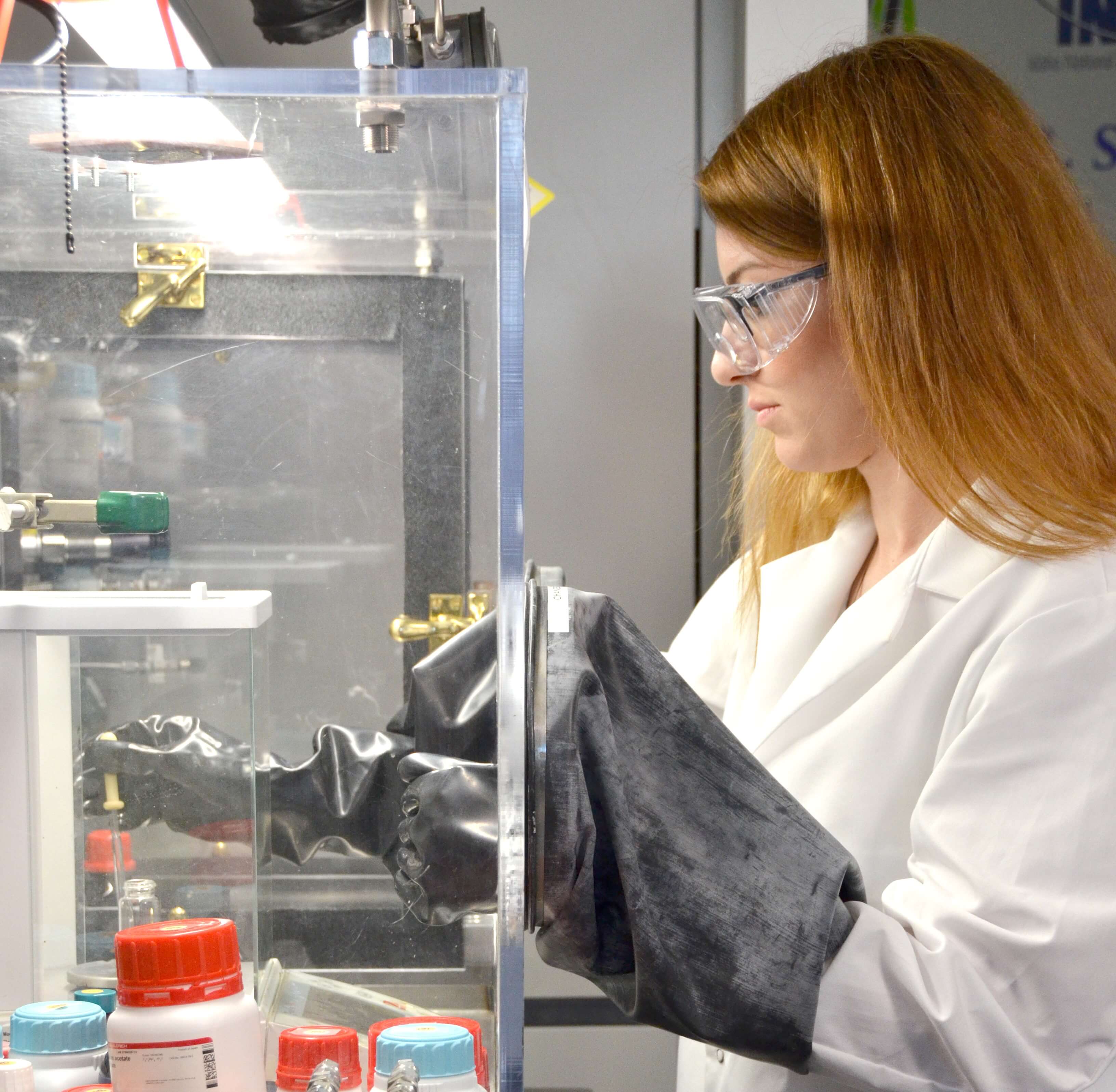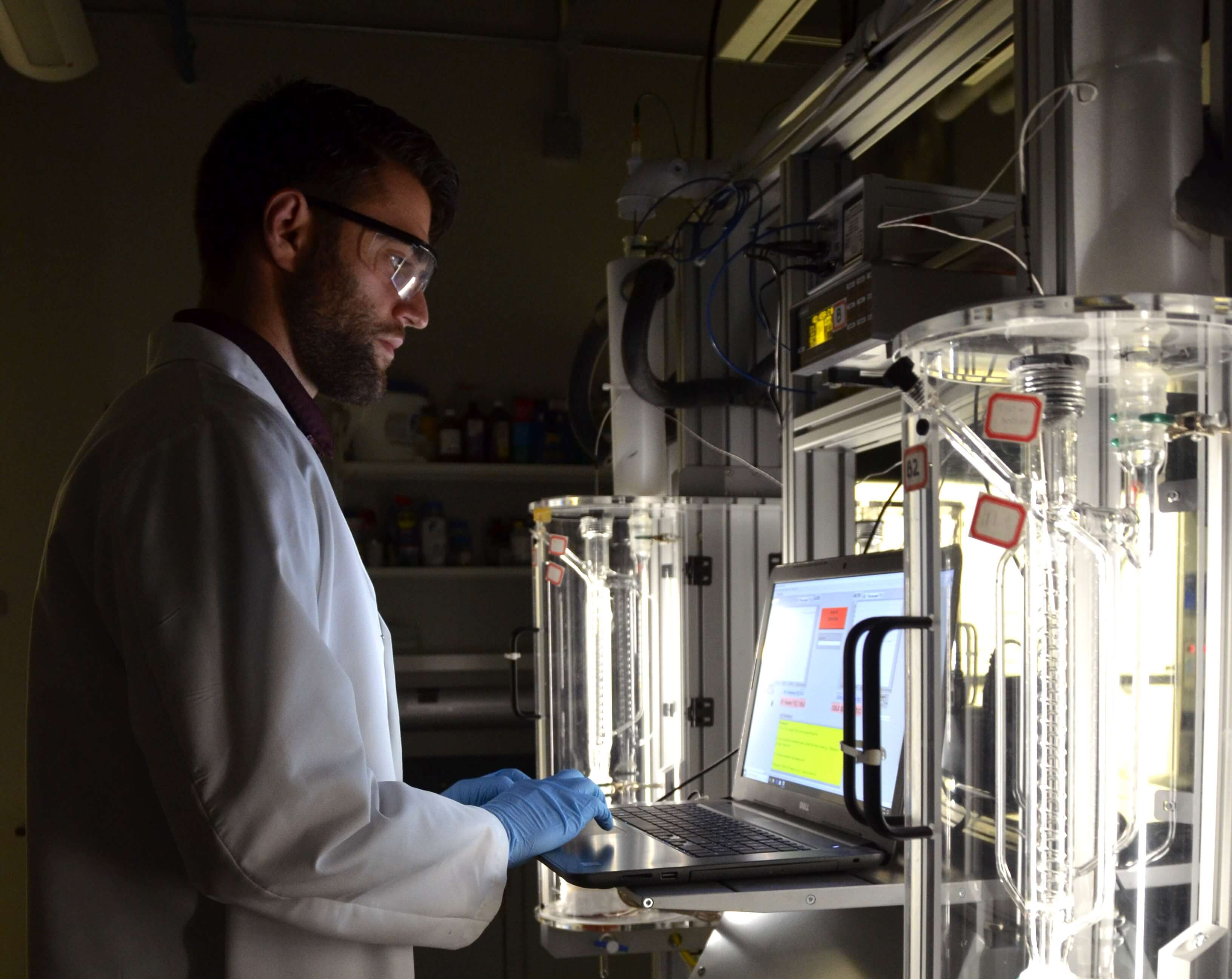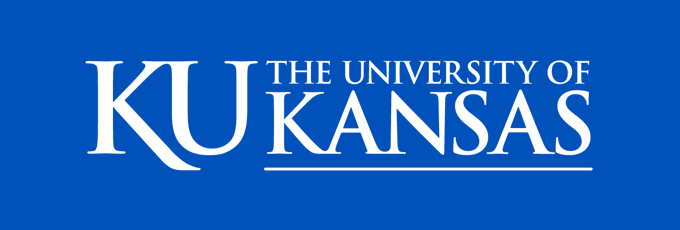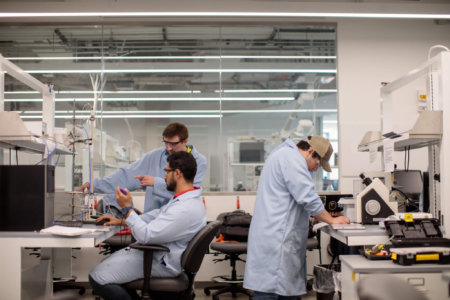The Department of Chemical and Petroleum Engineering (CP&E) at the University of Kansas thrives in a pivotal space where engineering, chemistry, biology, geology, physics and mathematics intersect. It provides a modern chemical and petroleum engineering education with a balance between theory and practice. It is renowned for its impactful research, high quality teaching, impressive industry connections, and excellent graduate outcomes. Combined, these factors produce highly trained engineers ready to advance industry and research through collaborations across discipline, institution, and sector boundaries.

A world of opportunities opens up for students when they become a petroleum or chemical engineer. Source: University of Kansas
Chemical and petroleum engineers play a major role in shaping the modern society by providing sustainable technologies that impact every industry around the world. At the University of Kansas, chemical and petroleum engineering graduates are solving grand challenges in areas including catalysis and sustainable engineering, renewable and alternative energy, drug delivery, biomaterials and tissue engineering, data mining and machine learning, enhanced oil and gas recovery, conventional and unconventional reservoirs, and reservoir characterisation and simulation. Faculty offer hands-on courses using state-of-the-art, industrially relevant software and equipment.
In Petroleum Engineering, students work on industry-based case studies provided to them by oil and gas operators and have the option to study and do research in the areas of natural gas engineering, data science, and AI-assisted exploration to prepare them for the new energy transition era. In Chemical Engineering, students can specialise by taking courses and doing research in biomedical engineering, environmental engineering, materials science, petroleum engineering, and pre-medicine, preparing them for a broad range of careers.
A greener future with CP&E
A CP&E education provides students with the essential tools to forge a more sustainable future. The department is home to several renowned research centres as well as highly specialised academics who double as world leaders in research and innovative educators.
At the Centre for Environmentally Beneficial Catalysis (CEBC), researchers are working towards one mission: to invent cleaner, safer and sustainable technologies that protect planetary and human health. It is a research division where students learn to develop cost-competitive chemical manufacturing processes that prevent waste, conserve natural resources, and protect nature. Faculty and students collaborate with industry partners to develop catalytic processing that solve the most important challenges. Developing novel ways to save energy, minimise hazards, and use renewable materials is at the core of CEBC’s purpose.
The Tertiary Oil Recovery Programme (TORP) works to evaluate the full potential of the oil recovery processes and offer multi-disciplinary solutions to the oil and gas industry. This includes Improved Oil Recovery (IOR) methods for both conventional and unconventional reservoirs. The success of the programme resulted in the development of a research facility at the University of Kansas that handles laboratory experiments related to oil recovery and collaborates with institutions, consortiums, core labs and research groups such as Kansas Geological Survey (KGS), Institute for Bioengineering Research (IBER) and Kansas Interdisciplinary Carbonates Consortium. TORP also offers webinars, workshops and training courses in cooperation with the oil and gas community as part of their thriving technology transfer programme.

Students actively learn in new classrooms designed for collaboration and teamwork. Source: University of Kansas
Undergraduate and graduate students in C&PE have the chance to work in state-of-the-art facilities on projects that are cutting-edge. In 2019, the department received a US$3 million grant, approved by the National Science Foundation, to leverage the power of data mining and machine learning for rational catalyst design. The department also received a US$3.5 million grant from the US Department of Energy Office of Fossil Fuels to develop a Novel “Smart Microchip Proppants” Technology for Precision Diagnostics of Hydraulic Fracture Networks. This game-changer technology addresses critical gaps in understanding of unconventional shale reservoir behaviour and optimal well completion strategies in order to enable more cost-efficient unconventional resource recovery.
The department is also building additional research centres with projects revolving around sustainability and goals of integrated educational and research platforms. Students will be able to conduct multidisciplinary research in sustainable renewables, net-zero energy, recycling materials and other sustainability areas with an emphasis on data science and digital 4.0 technology development. Project EARTH (Environmentally Applied Research Towards Hydrofluorocarbons) is an example of the collaborative and multidisciplinary research available to KU C&PE students.
A high level of industry engagement and research means the department’s curriculum stays right at the cutting edge. This ensures that graduating chemical and petroleum engineers at the University of Kansas step into a world of opportunities. Whether it’s being employed in industry-leading companies, continuing their education at the top graduate or medical schools, or becoming an academic at institutions around the world, chemical and petroleum engineering graduates are leaders ready to solve the world’s grand challenges.
Follow the University of Kansas on Facebook, LinkedIn, YouTube, Instagram, and Twitter.













